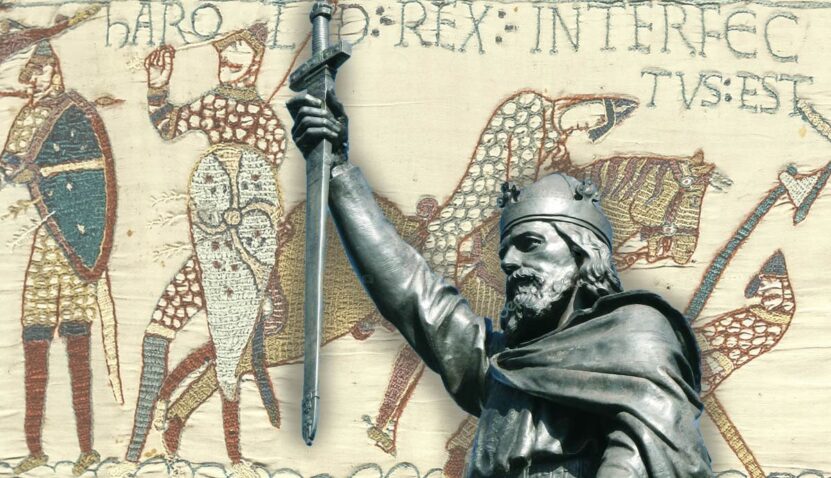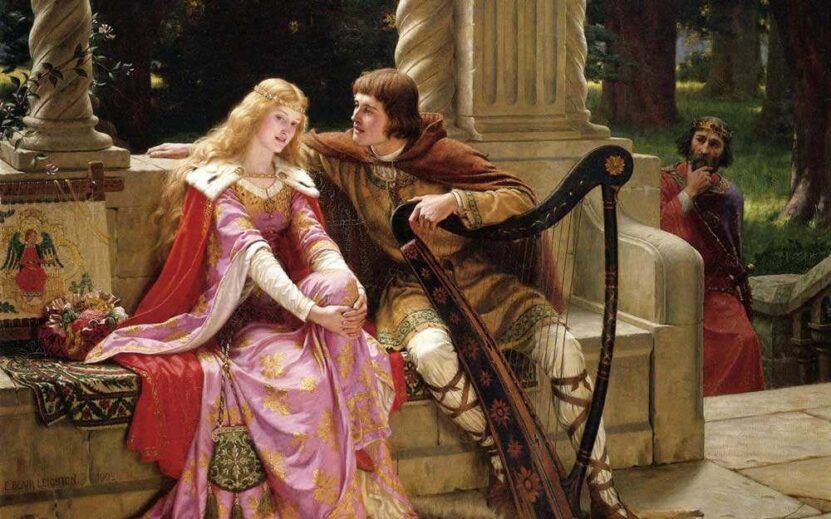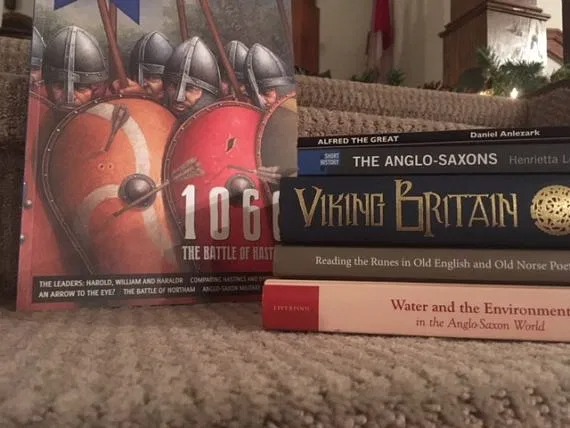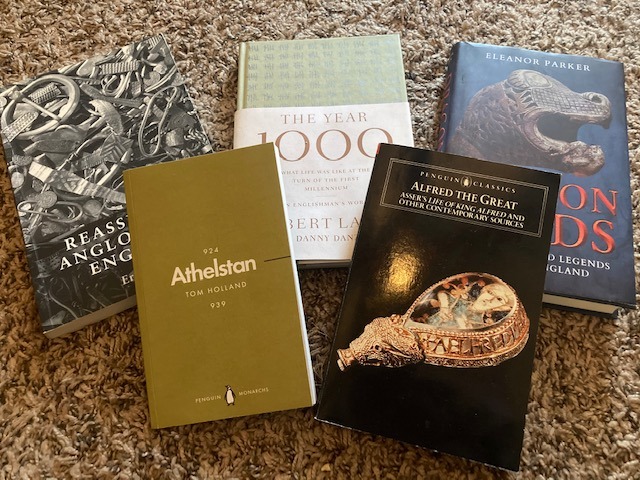The Anglo-Saxon period, a time often labelled the ‘Dark Ages’, is anything but. Spanning over six centuries from the departure of the Romans to the Norman Conquest in 1066, this era laid the foundational stones of what would become modern England.
It was a time of epic battles, the rise of Christianity, the flourishing of remarkable art and craftsmanship, and the creation of a distinctly English identity.
From the legendary King Alfred the Great to the intricate beauty of the Sutton Hoo treasures, this period is rich with stories that captivate the imagination.
For anyone seeking to delve into this fascinating time, the right books are essential.
But with so many titles available, from academic texts to historical fiction, knowing where to start can be a challenge. That’s why having a curated guide to the best Anglo-Saxon books is so incredibly useful.
Why Anglo-Saxon History Still Matters

The legacy of the Anglo-Saxons is woven into the very fabric of our lives today. The Old English language they spoke is the direct ancestor of the language we use, with many of our most common words – like ‘house’, ‘king’, and ‘folk’ – originating from this time.
Their legal and political systems, with the concept of a single kingdom of England, laid the groundwork for our modern state.
Their art and literature, exemplified by the epic poem Beowulf and the illuminated Lindisfarne Gospels, are masterpieces of world culture.
Studying the Anglo-Saxons is not just about looking at a distant past; it is about understanding how our nation and our language were forged. It’s a journey to discover our own historical roots.
If you’re wondering why the Anglo-Saxon era still feels relevant today, here are a few ways its influence shows up in everyday life:
- Language roots: Over 4,000 words we use daily come from Old English.
- Place names: Hundreds of towns in England still bear Anglo-Saxon names—like Birmingham, Reading, and Oxford.
- Cultural echoes: Our jury systems, wergild (compensation for harm), and parish structures have their foundations here.
These remnants are not just linguistic quirks—they are living evidence of a cultural continuity that shaped modern Britain.
The Search for the Perfect Read
Whether you are a seasoned historian, a student, or simply a curious reader, there is a wealth of literature to explore.
For those who want a comprehensive, non-fiction overview, there are classic works by respected scholars like Sir Frank Stenton’s monumental Anglo-Saxon England or the more recent, and highly-acclaimed, The Anglo-Saxons: A History of the Beginnings of England by Marc Morris.
These books provide a deep, well-researched look at the political, social, and cultural aspects of the period, often with stunning photographs and illustrations of surviving artefacts and sites.
For readers who prefer a more narrative and engaging style, works by authors such as Michael Wood are a fantastic starting point. His book, In Search of the Dark Ages, beautifully blends archaeology, history, and storytelling to bring the era’s key figures and events to life.
Similarly, Robert Lacey and Danny Danziger’s The Year 1000 offers a fascinating window into the daily lives of ordinary Anglo-Saxons, making the period feel immediate and relatable.
Beyond the Textbook: Historical Fiction and Primary Sources
For many, the world of the Anglo-Saxons truly comes alive through historical fiction.
Bernard Cornwell’s hugely popular The Last Kingdom series, which inspired the hit television show, offers a thrilling and immersive journey into the world of King Alfred and the Viking invasions.
While not strictly historical fact, these novels are meticulously researched and provide a vivid, visceral sense of the era’s challenges and conflicts.
They are perfect for sparking an interest that can then be explored with non-fiction books.
For those ready to delve into the words of the best Anglo-Saxon books themselves, there are excellent modern translations of primary sources.
A great place to start is with Beowulf, the heroic epic that is the cornerstone of Old English literature, or with The Anglo-Saxon Chronicle, a collection of manuscripts that provides a year-by-year account of events from the time.
These works offer an unparalleled insight into the mindset and worldview of the people who created them.
Exploring Anglo-Saxon Women and Everyday Life

While kings and warriors dominate much of the narrative, a complete picture of Anglo-Saxon life must include the role of women and the rhythms of everyday existence.
Recent books like Women in Anglo-Saxon England by Christine Fell shine a light on female influence in both domestic and political spheres.
Noblewomen, abbesses, and queens wielded surprising power, especially in early Christian communities where literacy and patronage of religious institutions gave them visibility.
Other titles such as The Mead-Hall: The Feasting Tradition in Anglo-Saxon England provide vivid insights into how ordinary people lived, feasted, and worked. These books help reconstruct the texture of life beyond battles and royal courts — weaving, farming, healing, and storytelling were as essential to the era as warfare.
“Women played a critical role in preserving culture, faith, and family legacy during uncertain times.”
— Christine Fell, Women in Anglo-Saxon England
How to Choose the Right Book for You
Finding your way into Anglo-Saxon history can depend on what kind of reader you are. Consider these simple pointers to help guide your choice:
— If you’re a visual learner who enjoys illustrations and artefacts, look for books with rich photographic content and historical maps, such as museum editions or academic overviews.
— If you prefer a story-driven approach, opt for historical fiction or biographies that bring characters and events to life.
— If you’re after factual depth, choose well-researched academic texts that explore political structures, language, and archaeology in detail.
— If you’re short on time or just getting started, begin with an accessible overview or a timeline-based book that gives context without overwhelming detail.
— If you’re drawn to original voices, try modern translations of primary sources like Beowulf or The Anglo-Saxon Chronicle to hear the era in its own words.
Matching your reading style to the type of book can make your journey into the Dark Ages even more engaging—and far less daunting.
Conclusion

The Anglo-Saxon period continues to inspire curiosity and admiration—not only for its legendary figures and political drama, but also for the enduring cultural legacy it left behind.
From gripping historical fiction to detailed academic studies and primary texts that give voice to a distant past, there’s an entry point for every type of reader.
Ultimately, whether you’re looking for academic rigour, a compelling story, or a glimpse into the everyday lives of a thousand years ago, the diverse range of available books on the Anglo-Saxons means there is something for everyone.
A good booklist is more than just a reading suggestion—it’s a way to navigate this rich literary landscape and embark on a deeply rewarding historical adventure.

